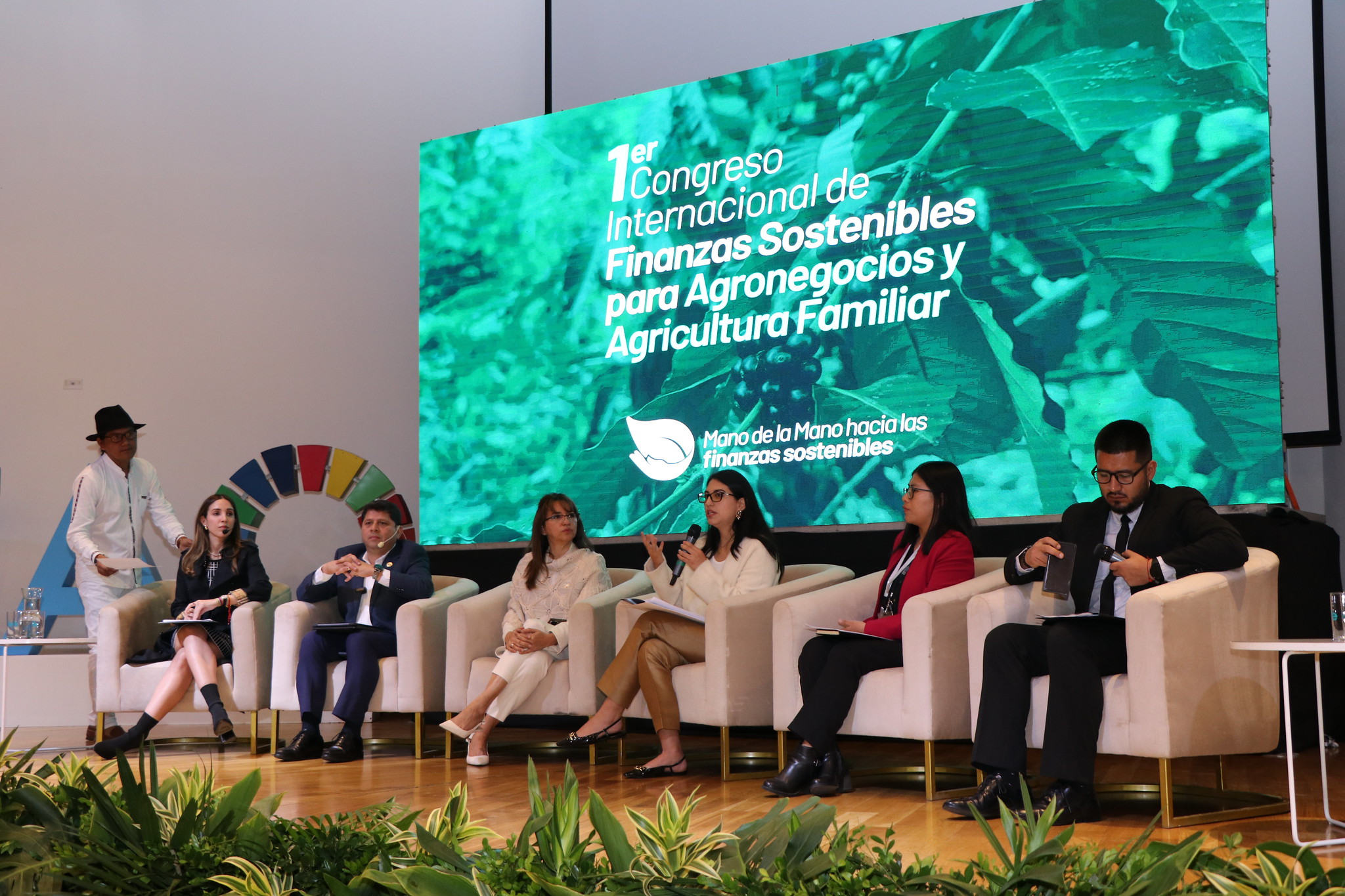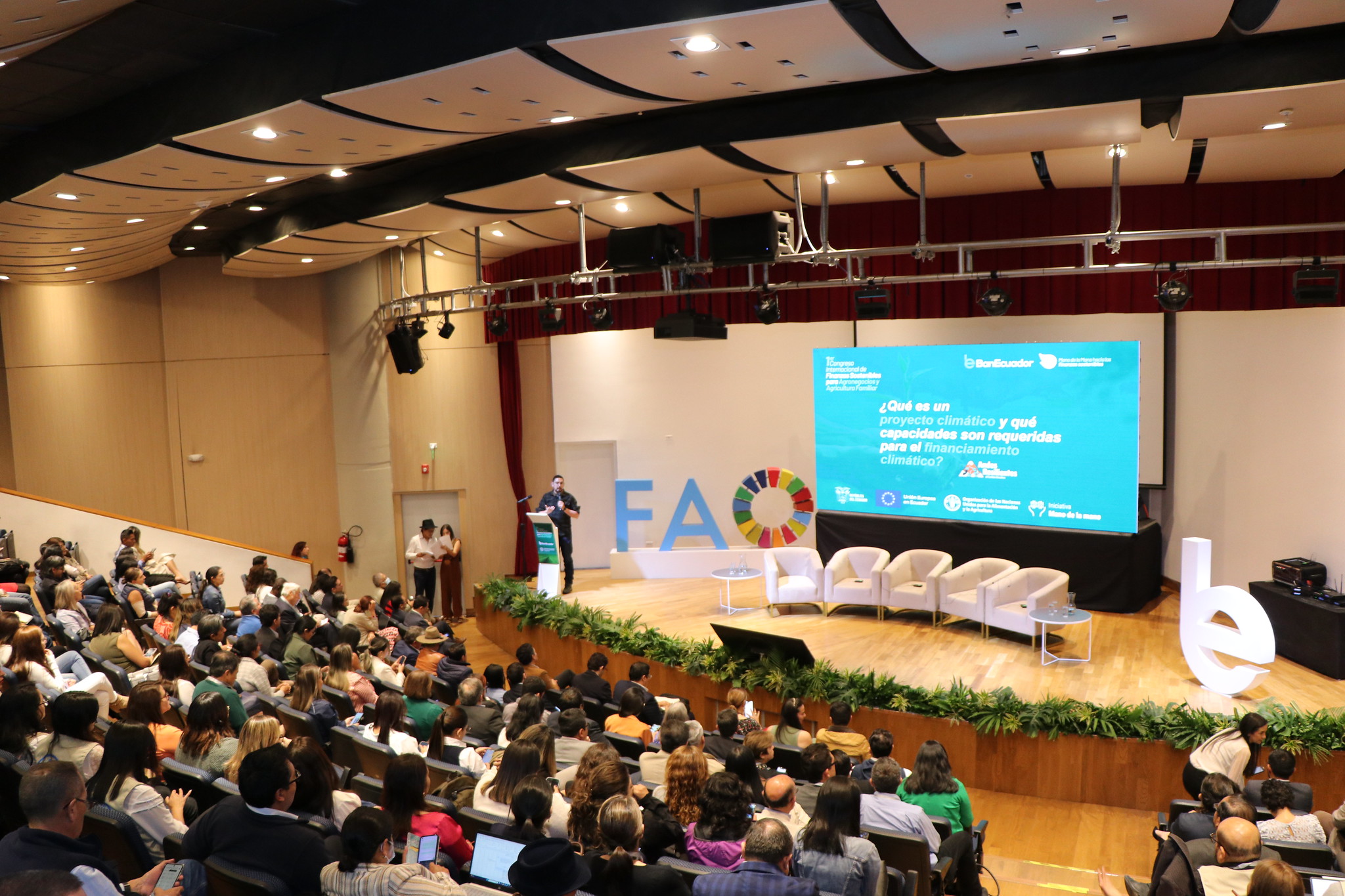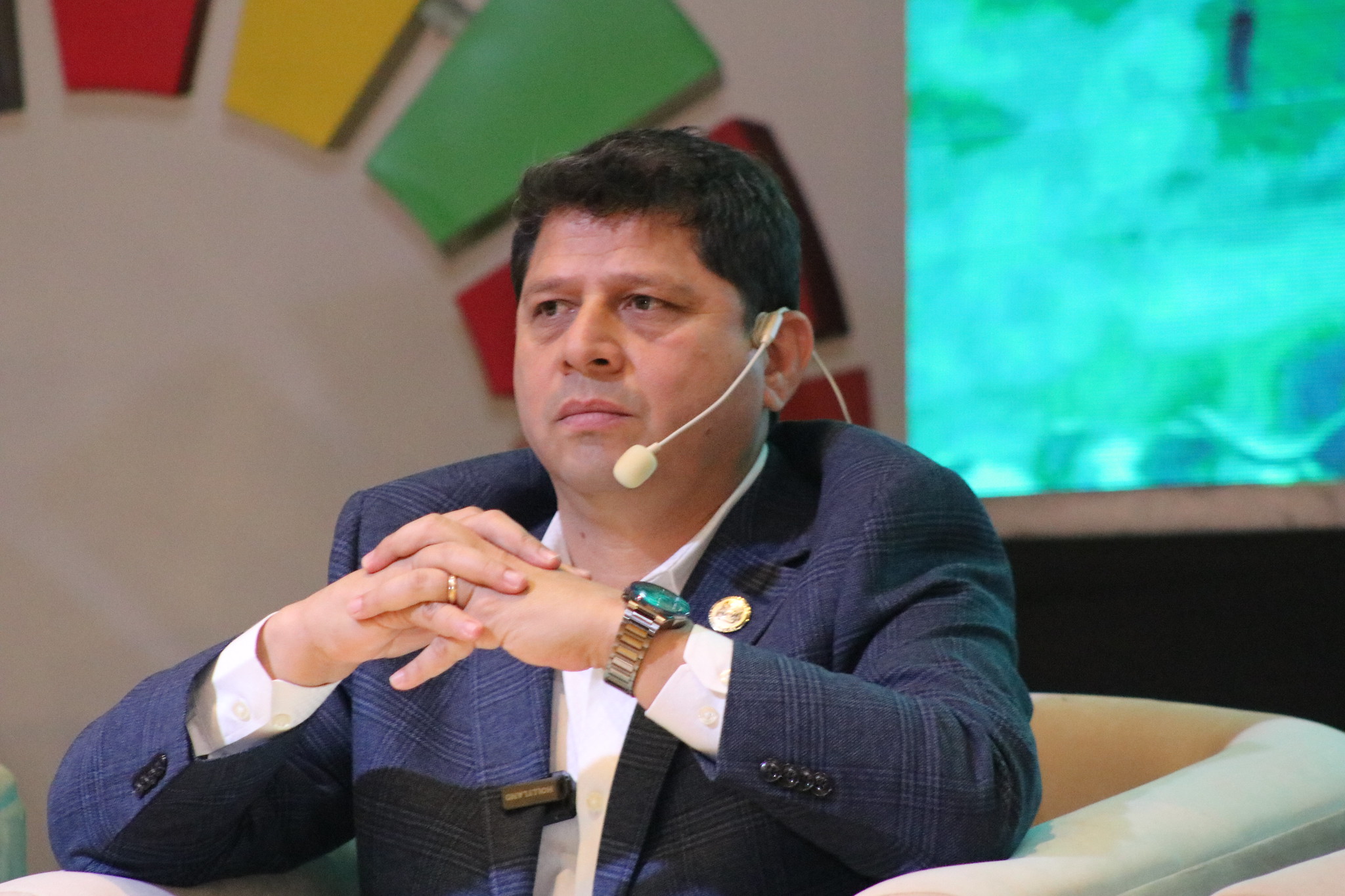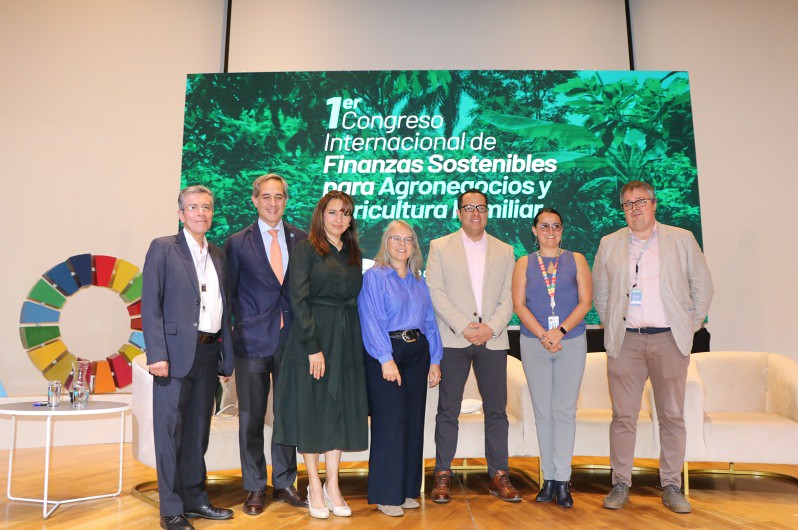Boosting rural finance with sustainable credit: a key objective of the strategic alliance between BanEcuador and FAO's Hand-in-Hand Initiativee

20.09.2024
Organized by the BanEcuador bank with the support of the Food and Agriculture Organization of the United Nations (FAO) under its Hand-in-Hand (HIH) Initiative, the first International Congress on Sustainable Finance for Agribusiness and Family Farming took place on 11–12 September in Quito, Ecuador. The event brought together over 400 participants.
In Ecuador, FAO’s HIH Initiative aims to strengthen the agricultural sector and attract investments focused on organic products and dairy. As Ricardo Rapallo, Senior Governance and Policy Officer at FAO, explained, “Inclusive financial services are one of the most effective mechanisms for leveraging the agricultural potential of agrifood systems to benefit the rural poor and traditionally excluded populations."
The initiative promotes technological innovation for the industrialization and diversification of organic products in the country, especially non-traditional ones, including quinoa, vanilla, and guayusa. To achieve this, the initiative encourages investment to support cooperative business models among producers, through the creation of rural enterprises that add value.
The Investment Note for the Expansion of Dairy Product Exports is structured around four key components, which will also be addressed during Ecuador's participation in the upcoming Hand-in-Hand Investment Forum at FAO Headquarters, from 15–17 October.

For sustainable production, the focus is on accelerating the transition from conventional to organic models through territorial development programmes and technological research. In terms of traceability, the aim is to ensure transparency and control at every stage of organic food production by strengthening official traceability systems to meet new due diligence requirements and establishing National Certification Laboratories.
The key areas of action during Ecuador's National Forum focused on enhancing access to BanEcuador credits, particularly prioritizing rural women. "At the Ministry of Agriculture and Livestock, we are committed to enhancing the value of rural women's work in Family Farming through programmes and training. Their participation is key, and we must support it with sustainable finance and financial products focused on rural areas," said Minister Danilo Palacios, emphasizing the importance of this approach.

Another area of focus at the event was redesigning financial products such as “Productive Youth” and “Deforestation-Free Credit.” These products are being developed with a sustainable approach to encourage greater participation of young people in agriculture, promoting both economic and environmental sustainability. Throughout the event, there was a large emphasis on the importance of sustainable practices in the financial sector, from a variety of lenses.
During the congress, key representatives also signed an Interinstitutional Strategic Alliance.
The alliance involves establishing an Interinstitutional Technical Committee dedicated to creating sustainable credit products. These products will help finance FAO’s sustainable activities and social projects, providing financial support that aligns with ecological and social goals.
In the context of this event in Ecuador, and in light of the upcoming Investment Forum, FAO Representative in Ecuador, Gherda Barreto Cajina emphasized, "Sustainable agriculture is not possible if we do not have adequate financing—an inclusive financing, a type of financing that we say must be tailored to the client."
She continued, "In this case, it is a special client because we are talking about a farmer - a producer who faces climate risks, and who has the need for financial services that reach rural areas.”
The alliance is creating conditions for a new Green Credit Line for Climate-Smart Livestock. This initiative aims to promote sustainable practices that reduce the environmental impact of livestock farming, fostering a more environmentally friendly agricultural sector. This also includes a technical committee for specialized credit products, developed under FAO's Andean Landscapes project, driven by the Ministries of Environment, Water, Ecological Transition, and Agriculture and Livestock, with funding from the European Union.
BanEcuador is also accompanying the Hand-in-Hand Initiative in the country advancing in the implementation of its new sustainable finance model based on governance, technology, and the inclusion of green investments to fund sustainable development activities for family farming.

The event also brought together producers, public and private organizations, academia, and the third sector. Discussions focused on attracting territorial investments, enhancing financial inclusion, and promoting sustainable production. On the second day, working groups collaborated to develop technical proposals for new credit lines for BanEcuador.
Ultimately, the country’s goal is to open national and international markets for these value-added organic products by developing a country brand and negotiating regulatory agreements that foster a favourable and competitive environment for the organic sector.
Register for the Hand in Hand Investment Forum 2024, 15–17 October.
For more information about HIH and country engagement, see here.
Read about other national investment forums: Bhutan, Asia-Pacific Regional Forum, Paraguay.

